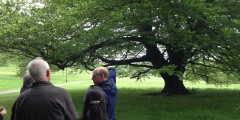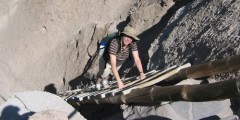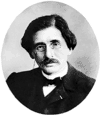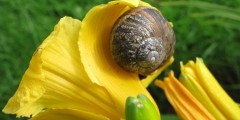The little-known secret of “not-doing”
August 9, 2013
Guest post by our visiting fellow, Jeff Tamblyn, film maker and director of Kansas vs. Darwin. The campus itself might have been what drew me to the MayFest Grounds Tour at the University of Nottingham – it’s vast, sweeping, and dotted with stately buildings and huge trees, many of which are more than three centuries old. …
Science communication: From filling deficits to appreciating assets
August 4, 2013
I recently read a blog post on science communication by John Timmer and a response to this post by Peter Broks, which made me think about (a) the public understanding of the ‘deficit model’ and (b) how one can get from saying science communication should be engaging in the ‘co-creation’ of meaning (Broks) to giving …
Making Science Public: A one-year anthology of blog posts
August 2, 2013
In spring 2012 we began work on a five-year research programme funded by the Leverhulme Trust entitled ‘Making Science Public: Challenges and Opportunities’ (2012-2017). The programme deals with all aspects of ‘making science public’, but in particular with controversies around science, politics, publics and participation. As part of the programme, we began writing a blog …
Science communication: Bridging theory and practice
May 21, 2013
On Friday 17 May 2013 I was at the Science Communication Conference 2013, organised by the British Science Association. I participated in a session on ‘Bridging theory and practice’ coordinated by Paul Manners, Director of the National Coordinating Centre for Public Engagement and Helen Featherstone, Project Manager (Public Engagement) for the CATALYST project at Exeter …
Debating empty chairs: creationism, climate and public engagement
May 17, 2013
This week, Making Science Public has been very proud to welcome US film director Jeff Tamblyn during his UK visit. On Wednesday we screened his amazing film, Kansas vs Darwin, a documentary charting the attempts by members of the Kansas School Board to introduce creationism and intelligent design into high school science teaching. The film …
Gabriel Tarde and science communication – some reflections
May 10, 2013
More than a century ago the French sociologist Gabriel Tarde began to think seriously about knowledge, influence, politics and publics (Tarde, 1895, 1898, 1903; see here). Most importantly, he wanted to study the dynamics of interaction between various actors in networks of ‘conversation’ (Nerlich, 1992, 1996) (Clark, 1969, Katz, 1993, Katz, 2006). Communication, opinion, power …
Wonder, Wunder, Wissenschaft
March 10, 2013
Television series like Wonders of the Universe and Wonders of Life have triggered online debates about the relationship between science and wonder, wonder and religion, science and science communication. I began to wonder: should I not write a blog post about ‘wonder’? So I started to search, as I always do, trying to find some …
Are they really climate deniers? Closing down debate in science and politics.
March 9, 2013
Just had an interesting back and forth with Vanessa Heggie about ‘what to call climate deniers/sceptics’? At the bottom of her excellent post on ‘how to debate with sceptics’, Vanessa wonders whether ‘denier‘ or ‘sceptic‘ is the right word to use around climate change. This was a handy reminder that, although I read stuff on …
What is science communication? Reflecting on one fall-out from the Cox/Ince debate
January 7, 2013
Just before Christmas 2012 Brian Cox and Robin Ince published an editorial in the New Statesman entitled ‘Politicians must not elevate mere opinion over science’, which provoked a lively debate on twitter, in blogs and in the Guardian about the relation between science and politics, the function of the history and philosophy of science, the …










